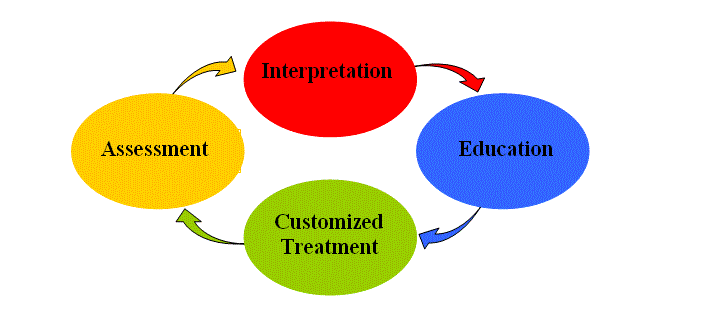Clinical Psychology and Neuropsychology Blogs
Read something good for your brain!
What Makes Psychotherapy Work?
Choosing the right therapist can be a difficult and daunting task. After looking at a therapist’s qualifications, certifications, and degree, to some extent, your selection of a therapist is about finding the right fit because everyone is unique. A therapist who is right for someone else may not be right for you and vice versa. But how can you tell which therapist will be the right fit for you? Read more
For Physicians: Screening Measures vs. Neuropsychological Testing Referrals
Question: As a physician, I use an in-house test for Alzheimer’s disease. Why would I need to refer a patient for neuropsychological testing?
Many physicians use the Mini Mental Status Exam (MMSE) or similar brief screening measures when a patient or patient’s family members bring up memory concerns. However, physicians may consider referring a patient to neuropsychological testing for many reasons, including the following:
- The MMSE test is not very sensitive, missing between 23 and 55 percent of Mild Cognitive Impairment, which can be an early indicator of Alzheimer’s disease or other neurodegenerative disorders
- Read more
Memory Problems: Normal Aging, or Something Else?
We can all think of times when we could just not remember something that seemed so simple. It is well known that some age-related memory decline is normal. In fact, there are some areas of brain functioning that can begin to decline as early as age 25. Sometimes, a memory failure can be scary. Is it a sign of early Alzheimer’s disease or some other problem, or is it just a “senior moment?” Is an evaluation needed?
Neuropsychology and Early Diagnosis of Alzheimer’s Disease and other Neurodegenerative Disorders
New diagnostic techniques have revealed pathological changes in the brain that occur early in the process of Alzheimer’s disease and other neurodegenerative disorders. Researchers suggest that these pathological changes can precede noticeable clinical symptoms (memory loss, personality changes) by as many as ten years (Sperling et al., 2011). Thus, by the time even subtle symptoms are present, these processes may have been taking place for years, so early diagnosis is crucial.
I Was Referred for a Neuropsychological Evaluation. What’s Next?
Your doctor referred you for neuropsychological testing so you can be evaluated by a specialist trained to get detailed measures of your brain functioning. There are several reasons why your doctor may want measures of your brain functioning:
What is Neuropsychology and What Can It Do for Me?
Neuropsychology is the study of the relationship between brain function and behavior. Neuropsychological evaluations begin with assessment, where you do tasks that test the different key areas of your brain. After we interpret the tests, we get to know your brain functioning in detail and can figure out what parts of the brain are working fine and what parts are not. We use that information to make individually tailored recommendations which help make your treatments work better by teaching you how to rely more on the parts of your brain that are still functioning properly.
